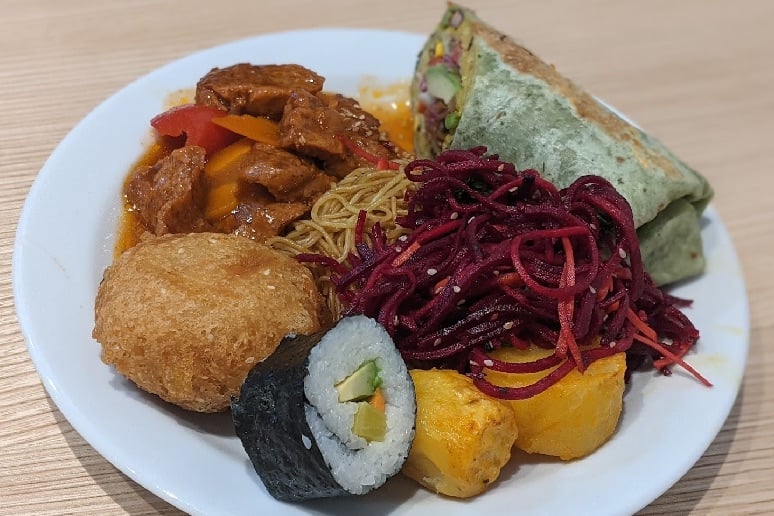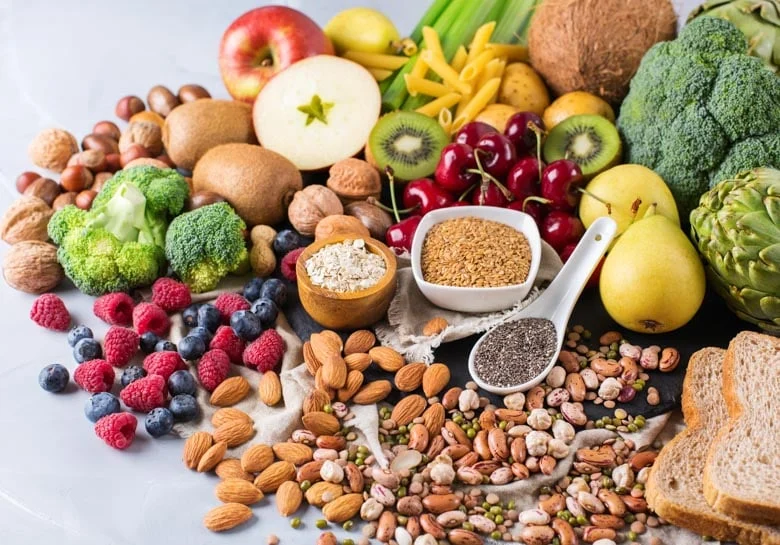There are significant health advantages to adopting a vegan diet. Reduced risk of type 2 diabetes and lower cholesterol levels are connected with plant-based diets. Compounds found in plant meals also have anti-cancer effects. Some individuals also find that switching to vegan meals that are high in fiber and low in meat, dairy, and eggs aids in their weight loss efforts.
Reducing your risk of chronic illness is as easy as consuming a diet rich in healthy fats and a range of plant-based foods. However, a little more effort is required to achieve nutritional requirements on a vegan diet. A fundamental understanding of vegan nutrition should be acquired by everyone consuming a vegan diet, whether partially or totally. In this essay, we will go over the most important nutrients. The only real challenge is that the offered material isn't quite intuitive.
Eating for Optimal Health
There is more to healthy eating than meeting nutrient needs, of course. Food choices impact your risk of developing heart disease, diabetes, and even cancer. Vegan diets are naturally rich in protective factors and tend to be lower in dietary components that raise risk. With just a little attention to food choices, you can take steps toward optimizing lifelong health.
So before we go over advice regarding particular nutrients, let me offer you some easy tips for eating more healthfully. Even if you read no further, these points will help you improve your overall diet.
- Fill up on fiber. Fiber is in all entire plant foods, thus vegan diets are high in it. Choose healthful grains over processed and whole fruits over juices. Consume one or two beans daily.
- Eat less saturated fat. This is simple on a vegan diet since most saturated fat originates from animal sources. Limit coconut oil and palm oil in processed meals. Vegans don't need to worry about saturated fat otherwise.
- A serving or two of nuts daily. These foods are heart-healthy.
- Regularly consume fruits and vegetables. Mineral-rich, they maintain good blood pressure. Fresh and frozen produce are equally delicious.
- Watch salt consumption, particularly from processed and canned foods.
- Alcohol use should be modest. This is two drinks per day for males and one for ladies.
Nutrient Intake Recommendations for Vegans

Whether you're vegan or not, consume a variety of healthy meals. Even with these meals as your diet, you may need nutrients. Vegans should prioritize protein, calcium, iron, zinc, vitamin A, omega-3 fats, B12, and D. These nutrients are often found in animal diets in the West. Vegans may readily receive all nutrients except B12 and vitamin D from vegan cuisine. Learn how to satisfy your B12 and D requirements on a vegan diet later in this article.
Protein
A number of popular books and websites assert that vegans have no need to think about protein. Unfortunately, that’s a misinformed and irresponsible position that can jeopardize health.
It’s true that severe protein deficiency is rare among people, including vegans, in higher-income countries. An extreme life-threatening deficiency like the disease kwashiorkor occurs only where people don’t have enough food. But some people still have protein intakes that fall short of optimal. Suboptimal protein status can impair bone health and muscle strength and reduce resistance to infections. Older people are especially at risk for getting too little protein. While many vegan foods are quite rich in protein, vegans can still fall short.
How to Eat More Protein-Rich Legumes
Two or three daily servings of legumes may sound like a lot, but serving sizes of these foods are surprisingly small. Any of the following counts as a serving of legumes:
- 1/2 cup cooked dry beans or lentils
- ½ cup tofu, tempeh, or TVP
- (3 ounces) soy, pea, or gluten-based vegetable meat
- 1 cup soy or pea protein milk (most plant milks are too low in protein)
- ¼ cup peanuts/soy nuts
- Two tablespoons peanut butter
Even if some of these foods are new to your diet, increasing your intake of legumes is easy. Here are some popular foods that feature legumes:
Iron and Zinc
Many vegan foods contain iron. Beans and whole grains are especially rich sources of this nutrient.
Unfortunately, the iron that is found in vegan diets is often attached to chemicals known as phytates, which hinder absorption. Phytates may be neutralized by the use of food preparation procedures such as sprouting grains and toasting nuts and seeds. This results in an increase in the availability of iron. However, one of the most efficient ways to improve iron absorption is via the use of vitamin C. The connection between iron and phytate is broken when vitamin C is ingested at the same time as iron-rich vegan meals. This results in a significant increase in the amount of iron that is absorbed.

